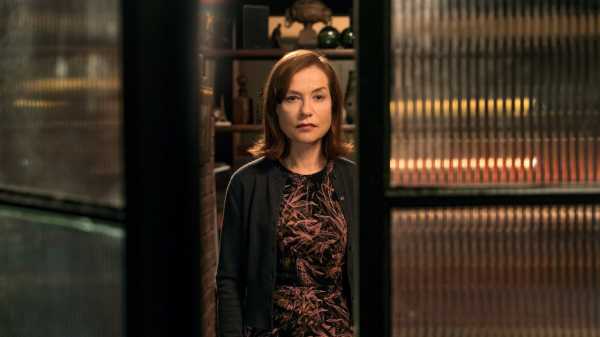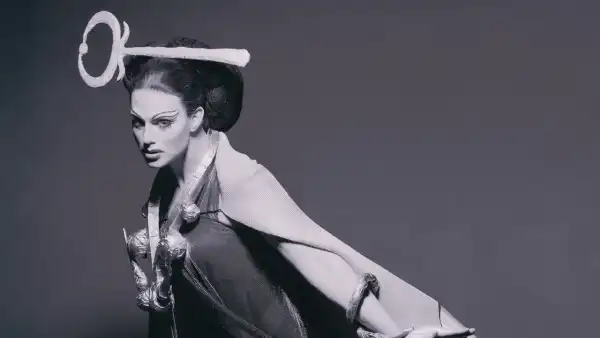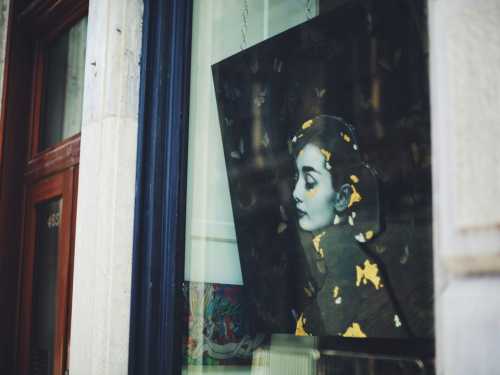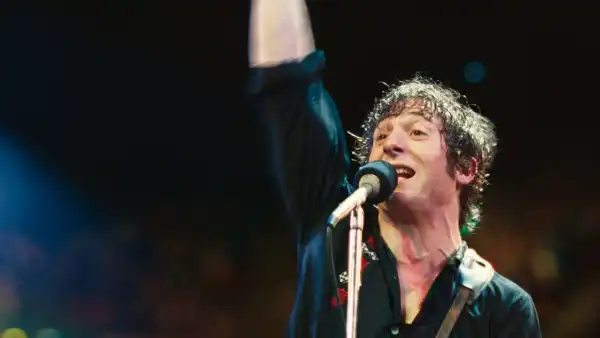
Similar to “Alita: Battle Angel” and “Roma,” “Greta” is a movie that elides the distinctive and significant psychology of its protagonist in the interest of shaping the plot. All three movies bring the flair and flash of skillful professional filmmakers to the fore; all three could do with a little more amateurishness, to break through the oversimplifying unity of the stories and let in the sunshine of immediate experience. “Greta” is the most rudimentary of the three movies—it’s a current-day thriller, set almost entirely in New York, with a handful of characters in a bare-bones story that’s wrapped up in a mere hour and thirty-eight minutes—and it leaves the impression of a cinematic elevator pitch in which some wonderful actors are cast in the role of stick figures and given hardly a chance to humanize them.
It’s all the more unfortunate inasmuch as “Greta” generates, at times, a satisfying sense of fear and tension; its director, Neil Jordan, crafts a few skillful touches that hint at what the movie might have become had it been more fully realized. Frances McCullen (Chloë Grace Moretz) is a recent graduate of Smith College living in New York, in the lap of postgraduate luxury. Her fellow-graduate Erica (Maika Monroe) has been given a Tribeca loft by her father, and Erica has invited Frances to live there with her. To earn money, Frances works as a waitress at an uptown restaurant. Finding a fancy handbag on the train, Frances brings it home (where she’s greeted by Erica’s skeptical warnings), locates an I.D., and takes a train to Brooklyn to return the handbag to the address of its apparent owner, Greta Hideg (Isabelle Huppert).
Frances attributes her trusting and helpful ways to her upbringing in Boston and, as if she’d grown up there in the age of Ralph Waldo Emerson, just drops in at Greta’s home—a detached town house distanced from the street by a deep courtyard. Greta, a widow whose daughter, she says, has moved to Paris, is a lonely woman of a certain age. Frances, whose mother died a year ago and whose relationship with her father is strained by his quick remarriage to a younger woman, is lonely as well. Greta instantly befriends Frances, who welcomes the overture, and they begin to spend much time together. When Frances discovers a set of identical handbags at Greta’s house, she realizes that the lost accessory was part of a setup to lure her into friendship. Frances breaks off that relationship, and then Greta becomes her stalker.
The cat-and-mouse story is pared down to the elements of its mechanism—there’s a taut, spare set of gears, springs and snap traps pressed to the fore, which ratchets up the tension and invites, if not detailed psychological portraiture, at least symbolic reverberations of the sort that a director of rarefied style would offer. Without creating a deeper context, Jordan hints at where it might be found: the core of the movie is the emotional neediness that draws Frances to Greta. In the women’s early encounters, Jordan presents the two actresses in urgent closeups that play cannily with their onscreen personae: those of Moretz, fixedly wide-eyed, are overwhelming, with unformed yearning; the matching ones of Huppert dissimulate, under surface emotion, a whir of high-speed calculation.
Yet the action and text put nothing behind the gazes; there’s no psychosexual resonance, à la Alfred Hitchcock or Chantal Akerman, no textured sensuality, à la Claire Denis or Paul Thomas Anderson, and no sense of physical presence or emotional complexity that suggests anything but a disinterested friendship in need—and even this friendship is stripped of substance, as if Frances were a mere windup toy for Jordan to put into motion and watch get into and out of trouble. Frances is granted no unconscious, and Jordan doesn’t display much of one, either. For that matter, Frances isn’t granted much of a conscious life, either. The movie shows almost nothing of Frances’s personal life: she doesn’t talk with Erica about anything substantial, doesn’t talk with other friends, doesn’t post on social media, doesn’t text with friends, and avoids going out to parties. She also seems averse to using Google until it suits the plot.
There are a few remarkable moments of sharp editing—an urban pursuit, via texted photos, that’s rendered mysteriously dramatic, and an intricate dream sequence that’s a cleverly enticing ruse—yet they’re merely decorative distractions from the willful insubstantiality of the movie’s characters, especially Frances. (When I mentioned this to one of my daughters, who saw the film the day it opened, she replied that Frances is a “Mad Lib”—a character constructed full of blanks to let viewers fill in the traits of their choice.) It’s a standard failing of movies that when a director goes gaga for an actresses—whether for her personality, her appearance, or her talent—the director films her in ways that suggest that merely looking at her is enough.
There is, however, a major and historically resonant theme that’s crucial to the plot, one that hints at whatever sense of social perspective the movie offers—and that may well have been left unexplored by the filmmaker precisely in order to mask its disturbing implications. Frances’s family is not wealthy like Erica’s, but it’s comfortably bourgeois—her father (Colm Feore) is a busy naval architect. Frances’s ambitions, activities, experiences, and dreams all remain opaque, but she’s depicted stereotypically, as a sheltered and gentle person, and, therefore, a vulnerable one. When Greta becomes a problem, Frances turns to the law, and the law offers no help. Ultimately, Frances (who, to all appearances, has neither military nor martial-arts training) is left to her own devices and proves defenseless against her willful pursuer. Avoiding spoilers, the story gives Frances ample opportunity to take action in self-defense—but at every turn she fails, whether by avoiding violence altogether or by applying it inadequately. Her aversions and omissions had me silently yelling advice to her from my seat in the theatre—the kind of exhortation to physical action that I’d likely be unable to take, for the same reasons.
The crucial story of “Greta” is the inadequate protection offered by society at large to those who are being pursued. It’s a crude and cruel vision of the dangers awaiting trusting and vulnerable souls like Frances—and the very lack of self-defense that such gentle creatures provide themselves with. “Greta” isn’t quite a promotional film for the Second Amendment or krav maga; rather, it’s a vision of the killer instinct—and, avoiding the ultimate spoiler, the movie is most telling, most self-revealing, in its suggestion of where that instinct is found.
Sourse: newyorker.com






